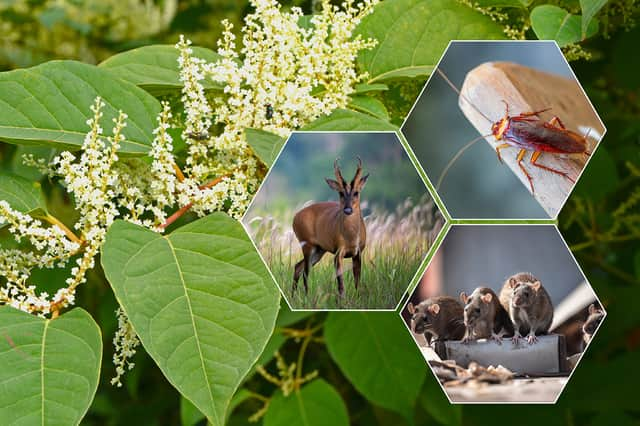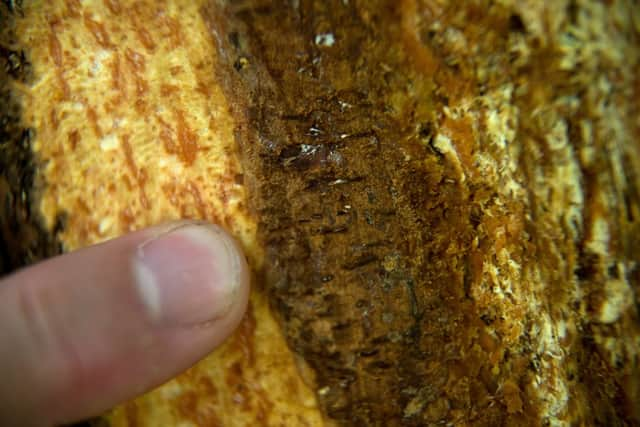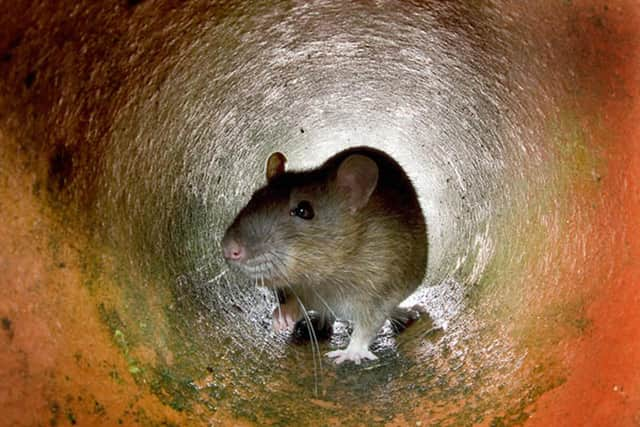Knotweed, rabbits, rats and roaches: invasive species cost UK economy £4 billion each year - research suggests


Invasive non-native species like the Japanese knotweed, introduced rabbits and an ash-tree killing fungus are now costing the UK economy around £4 billion each year.
A new study founded by Defra - the Department for Environment Food and Rural Affairs - and carried out by international scientific organisation Cabi found the financial blow to the UK's economy had more than doubled since 2010, when invasive plants, animals, and fungi cost it £1.7 billion a year.
Advertisement
Hide AdAdvertisement
Hide AdThe annual estimated costs in 2021 were £3 billion for England, £499 million for Scotland, £343 million for Wales, and £150 million for Northern Ireland, according to the research. While scientists said the rising costs were partly due to inflation, new species becoming established in the country also played a part.
There are around 2,000 invasive alien species in the UK currently, and up to 12 new species are becoming established every year. But which ones are causing the most damage to biodiversity and industry, and what is the UK government doing about it?
Here's everything you need to know:


Which non-native plants, animals, and fungi are causing the damage?
The fungus Hymenoscyphus fraxineus, which causes a disease called ash dieback that can kill ash trees, was found to be the most economically damaging species over the past decade, costing around £883.5 million.
The fungal disease originated in Asia, and is thought to have been brought to the UK on imported ash trees. It can create huge clean-up costs near roads, railways, buildings and other publicly accessible land, as infected trees wither and due - losing branches or even toppling over themselves.
Advertisement
Hide AdAdvertisement
Hide AdIt was followed by Japanese knotweed at £246.5 million. The fast-growing, hard-to-remove plant can cause structural damage to properties – which can be expensive to rectify – and decrease their values substantially.
Other invasive species causing significant economic damage included rabbits - costing the UK economy around £170 million, rats and mice at £84 million, cockroaches at £69 million, and deer at £62 million.
Invasive rabbits can destroy agricultural areas by overgrazing, while their burrowing also impacts the quality of pastures. Other species of concern include killer shrimp - rapidly breeding Eastern European natives who both prey on the UK's waterway inhabitants and leave their remains to rot, according to the Canal and River Trust.
The giant hogweed - a plant with sap that can burn human skin - minks, parakeets, and the sea squirt Didemnum vexillum - also known as 'sea vomit' - which forms mats that choke out other marine life, also made the list.


Which sectors are most affected?
Advertisement
Hide AdAdvertisement
Hide AdThe impact on the forestry industry has increased eightfold since the last report in 2010, and is now estimated at £123 million a year.
However, agriculture was found to be the most affected industry - costing the UK economy around £1.1 billion. The impact on construction, development and infrastructure sat at around £270 million, while tourism and recreation was losing out on £136 million, the scientists said.
What do researchers say Defra - and the government - need to do?
A Cabi spokesperson said the new assessment showed how significant a cost invasive non-native species (INNS) were to the UK economy, and highlighted the need to continue prevention, early detection, and eradication of the highest-risk species before they established themselves on the British Isles.
Senior scientist and lead author Dr Rene Eschen added that while the overall cost of invasive non-native species to the economy had increased, there have also been decreases in some species, such as rabbits, possibly due to effective management - while efforts of the UK’s Environment Agency also appear to have resulted in eradicating some existing infestations of water primrose.
Advertisement
Hide AdAdvertisement
Hide AdIn February, the Government published its GB Invasive Non-native Species Strategy to provide a framework to minimise the risk of invasive species.
Defra head of GB Non-Native Secretariat, Niall Moore, said: “Invasive non-native species pose a serious threat to our natural environment and this Government is taking action through the recently launched GB Invasive Non-Native Species strategy, to protect our native animals and plants from INNS.”
He added: “It is vital that we work together with researchers, scientists and others, who are working to tackle INNS, to prevent their entry into and establishment in Great Britain and, when they do become established, to mitigate their negative impacts.”
Comment Guidelines
National World encourages reader discussion on our stories. User feedback, insights and back-and-forth exchanges add a rich layer of context to reporting. Please review our Community Guidelines before commenting.
